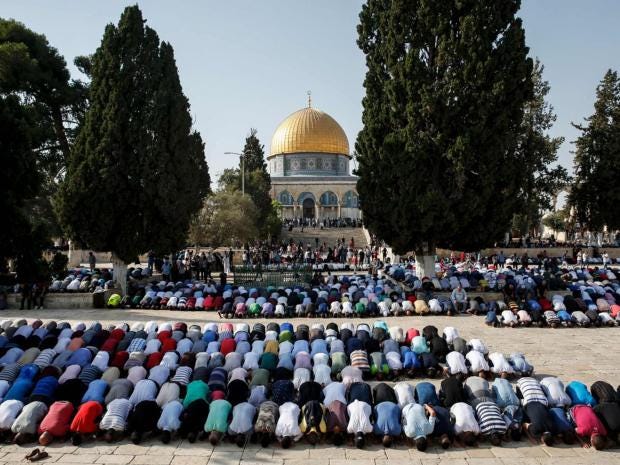
The White House has signalled that President Donald Trump may recognize Jerusalem as the capital of Israel, a distinction that would likely cause controversy in the region and would reverse the precedent established by his predecessors.
Mr Trump is reportedly considering recognizing Jerusalem as the Jewish nation's capital at the same time has he considers moving the US embassy to Israel there as well. That embassy is currently in Tel Aviv.
If Mr Trump decides to recognise Jerusalem as Israel's undivided capital, it is widely believed that it could imperil current relationships in the region and damage the President's chances at brokering a peace deal between Israel and Palestine. Instead, the recognition could trigger Palestinian protests, while shelving the long-stalled peace process there.
As Mr Trump and the White House prepares for a potential announcement on the subject, US embassies overseas have reportedly been informing envoys of the potential plan, so that host governments to those embassies might prepare for possible protests. Even so, officials have indicated recently that the plans weren't yet finalised.
The international community has long disagreed over what Jerusalem's legal and diplomatic status should be, and a fix to that has been further debated by legal scholars who have provided different ideas on how to resolve that dispute. The United Nations and the European Union have both proposed or recognized Jerusalem as something of an international site, given its deep history that includes several religious legacies. The United States has historically supported establishing an international regime for the city as well.
The primary dispute over Jerusalem's status revolves around East Jerusalem, which has been disputed since the the 1967 Six-Day War when Israel drove Jordan out of the area. Palestinians have argued that East Jerusalem should stand as their capital for a future independent state. Israel says that all of Jerusalem belongs to them.
There are currently about 200,000 Jewish settlers in East Jerusalem, and 370,000 Palestinians there as well. All told, more than 600,000 Jews live in nearly 140 settlements in East Jerusalem and the occupied West Bank. Those settlements are considered illegal under international law, a consideration that Israel disputes.
The status of Jerusalem has been so contentious, and so consequential to the region, that efforts to establish peace treaties between Israel and Palestine have been derailed in large part over disagreements over the city. That includes a 2000 attempt in America's Camp David, in which former Israeli Prime MInister Ehud Barak, and then-Palestinian leader Yasser Arafat were unable to reconcile their differences on territory and Jerusalem as well.
More follows…







